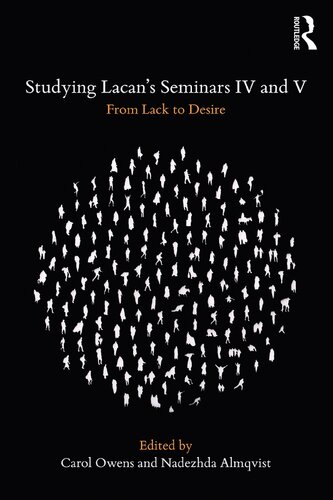

Most ebook files are in PDF format, so you can easily read them using various software such as Foxit Reader or directly on the Google Chrome browser.
Some ebook files are released by publishers in other formats such as .awz, .mobi, .epub, .fb2, etc. You may need to install specific software to read these formats on mobile/PC, such as Calibre.
Please read the tutorial at this link: https://ebookbell.com/faq
We offer FREE conversion to the popular formats you request; however, this may take some time. Therefore, right after payment, please email us, and we will try to provide the service as quickly as possible.
For some exceptional file formats or broken links (if any), please refrain from opening any disputes. Instead, email us first, and we will try to assist within a maximum of 6 hours.
EbookBell Team

0.0
0 reviewsThis is the first collection of essays to offer a comprehensive analysis of, and reflection on, the major themes emergent in Jacques Lacan’s seminars of 1955-56 and 1956-57: Seminar IV – the object relation, and Seminar V – formations of the unconscious.
Assessing the value of a clinical approach orientated around the question of the object lack in the contemporary clinic, the book comprises 16 chapters which follow the development of a range of concepts elaborated by Lacan in these seminars, including sustained engagement with his critique of object relations theory. It considers the effectiveness of these early ideas in clinical practice in relation to hysteria, phobia, fetishism, obsessional neurosis, and of the so-called "Borderline" case. Lacan’s early concepts are also subjected to critique for engagement with Queer theory, and research in asexuality or the operation(s) of the signifier Phallus.
The chapters build to provide an invaluable resource to interpret and evaluate Lacan’s early teaching, and to find in his early concepts a fresh utility and scope for both clinical work and psychoanalytic research and enquiry. The book will be of great interest to Lacanian scholars and students, as well as psychoanalytic therapists, and analysts interested in Lacan’s early work.